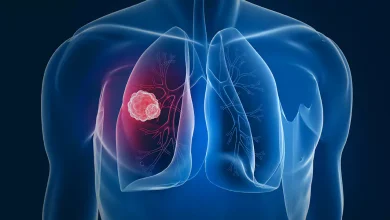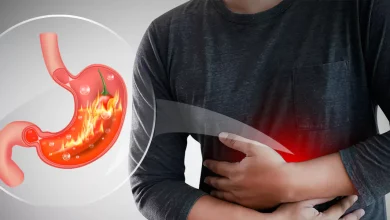All about ADHD

What is ADHD?
ADHD is an abbreviation of Attention deficit hyperactivity disorder which is a type of mental health ailment that creates uncommon levels of hyperactivity and impetuous behaviors. People suffering from ADHD face problems to provide attention on a single task along with feeling inattention and variations in energy levels. ADHD can have negative effects in studies, work, and personal life. Both adults and children have the risk of getting ADHD but children are more prone to it than adults. Even though it’s a common, lifelong disorder, ADHD symptoms can be eased with medicine and psychological treatments.
What are the Types of ADHD?
Researchers categorized ADHD into three main types:
- ADHD, Combined Type: It is the most common type of ADHD, and people with ADHD have this type of ADHD mostly. It is symptoms are impulsive and hyperactive behaviors along with inattention and distractibility.
- ADHD, Impulsive/Hyperactive Type: It is a rare type of ADHD, which is characterized by impulsive and hyperactive behaviors just like the combined type but it do not create inattention and distractibility.
- ADHD, Inattentive and Distractible Type: This type of ADHD is characterized mostly by inattention and distractibility but without hyperactivity.
What are the Symptoms of ADHD?
It is normal for people specially kids who finds difficulty in focusing and behaving but with ADHD, patients cannot get rid of these behaviors. Normally it starts with mild symptoms but many times it becomes severe, and creates problem at school, at home, in society or even with friends.
A few symptoms of ADHD are:
- Inattentiveness
- Frequently forget or lose things most of the times
- Hyperactivity
- Forgetful about completing tasks
- Talkative
- Do careless mistakes or take pointless risks
- Difficulty in resisting temptation
- Find it difficult to get along with others
- Impulsivity
- Impatient
- Fidget with or tap hands or feet, or wriggle in the seat
What are the Causes of ADHD?
Researchers till now are not able to find the main causes of ADHD but it’s believed that it is somehow related to s genetic. In addition to genetics, there are trying to find other possible causes of ADHD including:
- History of brain injury
- Getting exposed to environmental hazards during pregnancy or at a young age
- Using Alcohol and tobacco during pregnancy
- Premature delivery
- Low birth weight
What are the risk factors of ADHD?
ADHD is mostly a hereditary ailment and it may pass through parents to the children if the parents are diagnosed with ADHD. Though the exact origin of ADHD is ill-defined, there are some risk factors associated with ADHD such as:
- Biological Factor: ADHD is linked with the way some chemicals in the brain known as neurotransmitters work, particularly dopamine and norepinephrine, and this variance lead to changes in two diverse networks of the brain which are the default network, related with programmed attention and the task positive network, linked with directed or effortful responsiveness.
- Environment: Exposure to toxins in the environment such as lead has been interconnected to ADHD in kids.
- Prenatal substance exposure (during pregnancy): If a pregnant woman smokes or takes drugs, the risk of ADHD increases in the newborn.
What are the Complications of ADHD?
ADHD do not create any psychological or developmental conditions. However, people with ADHD primarily children are more likely than others to also face complications such as:
- Oppositional defiant disorder: Oppositional defiant disorder (ODD) usually demarcated as a configuration of negative, insolent and inimical behavior toward authority figures
- Conduct Disorder: ADHD patients develop violent and antisocial behavior like theft, fighting, damaging property, and hurting people or animals
- Disruptive Mood Deregulation Disorder: ADHD patients face issues like irritability and problem in tolerating frustration
- Learning disabilities: ADHD patients find difficulty in reading, writing, understanding and communicating
- Substance Use Disorders: Getting involved in drugs, alcohol and smoking
- Anxiety disorders and Mood Swings: People with ADHD may have conditions like including depression, anxiety and bipolar disorder, along with manic like manners
- Autism spectrum disorder: It’s a condition linked to brain development that effects how a person with ADHD perceives and socializes with others
What is ADHD?
ADHD is an abbreviation of Attention deficit hyperactivity disorder which is a type of mental health ailment that creates uncommon levels of hyperactivity and impetuous behaviors. People suffering from ADHD face problems providing attention on a single task along with feeling inattention and variations in energy levels. ADHD can have negative effects on studies, work, and personal life. Both adults and children have the risk of getting ADHD but children are more prone to it than adults. Even though it’s a common, lifelong disorder, ADHD symptoms can be eased with medical and psychological treatments.
What are the Types of ADHD?
Researchers categorized ADHD into three main types:
- ADHD, Combined Type: It is the most common type of ADHD, and people with ADHD have this type of ADHD mostly. It is symptoms are impulsive and hyperactive behaviors along with inattention and distractibility.
- ADHD, Impulsive/Hyperactive Type: It is a rare type of ADHD, which is characterized by impulsive and hyperactive behaviors just like the combined type but it does not create inattention and distractibility.
- ADHD, Inattentive and Distractible Type: This type of ADHD is characterized mostly by inattention and distractibility but without hyperactivity.
What are the Symptoms of ADHD?
It is normal for people, especially kids who find difficulty in focusing and behaving but with ADHD, patients cannot get rid of these behaviors. Normally it starts with mild symptoms but many times it becomes severe, and creates a problem at school, at home, in society, or even with friends.

A few symptoms of ADHD are:
- Inattentiveness
- Frequently forget or lose things most of the times
- Hyperactivity
- Forgetful about completing tasks
- Talkative
- Do careless mistakes or take pointless risks
- Difficulty in resisting temptation
- Find it difficult to get along with others
- Impulsivity
- Impatient
- Fidget with or tap hands or feet, or wriggle in the seat
What are the Causes of ADHD?
Researchers till now are not able to find the main causes of ADHD but it’s believed that it is somehow related to s genetics. In addition to genetics, there are trying to find other possible causes of ADHD including:
- History of brain injury
- Getting exposed to environmental hazards during pregnancy or at a young age
- Using Alcohol and tobacco during pregnancy
- Premature delivery
- Low birth weight
What are the risk factors of ADHD?
ADHD is mostly a hereditary ailment and it may pass from parents to children if the parents are diagnosed with ADHD. Though the exact origin of ADHD is ill-defined, there are some risk factors associated with ADHD such as:

- Biological Factor: ADHD is linked with the way some chemicals in the brain known as neurotransmitters work, particularly dopamine and norepinephrine, and this variance lead to changes in two diverse networks of the brain which are the default network, related to programmed attention and the task-positive network, linked with directed or effortful responsiveness.
- Environment: Exposure to toxins in the environment such as lead has been interconnected to ADHD in kids.
- Prenatal substance exposure (during pregnancy): If a pregnant woman smokes or takes drugs, the risk of ADHD increases in the newborn.
What are the Complications of ADHD?
ADHD does not create any psychological or developmental conditions. However, people with ADHD primarily children are more likely than others to also face complications such as:
- Oppositional defiant disorder: Oppositional defiant disorder (ODD) is usually demarcated as a configuration of negative, insolent, and inimical behavior toward authority figures
- Conduct Disorder: ADHD patients develop violent and antisocial behavior like theft, fighting, damaging property, and hurting people or animals
- Disruptive Mood Deregulation Disorder: ADHD patients face issues like irritability and problem tolerating frustration
- Learning disabilities: ADHD patients find difficulty in reading, writing, understanding, and communicating
- Substance Use Disorders: Getting involved in drugs, alcohol, and smoking
- Anxiety disorders and Mood Swings: People with ADHD may have conditions including depression, anxiety, and bipolar disorder, along with manic-like manners
- Autism spectrum disorder: It’s a condition linked to brain development that affects how a person with ADHD perceives and socializes with others
How is ADHD Diagnosed?
There’s no precise test for ADHD, but making a diagnosis involves:
- Medical exam to find the possible causes of symptoms
- Information gathering,like most of the medical concerns, personal and family medical history, and school records
- Interviews or questionnaires are created for people close to the ADHD patients and depending on their answers, a specialist can diagnose the condition
- ADHD rating scales to aid in collecting and evaluating information about the person who may be suffering from ADHD
What Are The Treatment Options For ADHD?
ADHD is not curable but treatments are done to ease the symptoms and problems that occur because of ADHD. The most common treatments include taking medicines, counseling with specialists, taking behavior therapy, and education services. These treatments can get rid of various symptoms of ADHD but remember once again that these treatments do not cure ADHD and just ease the symptoms so that the patient can lead a decent life.
Relaxation training and stress management are thought to lessen anxiety and stress. Along with behavioral treatments, medication is also used and the two most commonly used medicines in this class are methylphenidates and dextroamphetamines. These medicines benefit people with ADHD to pay attention to their thoughts and pay no attention to distractions.
Living with ADHD
Since ADHD is a lifelong disease with no cure and living with ADHD can be daunting, but treatment and lifestyle changes can help manage difficult symptoms for overall well-being. ADHD adversely affects your child’s academic progress. It’s important to discuss with your child’s teachers about any extra support your child may need as they can lead a normal school life. Adults with ADHD shall plan the day in advance while trying not to be harsh with anyone. Be organised and make lists, keep diaries, stick up reminders and try to have a normal life with discipline. ADHD patients have a high chance of becoming socially isolated also and trying to
Share your issues with your friends and family so that they can understand you and help you as much as they can.
Whom to Consult?
If you notice signs of ADHD in you or your kids, get an appointment with a pediatrician or family doctor. He may refer you to a specialist, like a developmental-behavioral pediatrician, psychologist, pediatric neurologist, or psychiatrist, but it’s vital to first go through a medical evaluation to diagnose the cause of such symptoms which are linked with ADHD. psychologist, pediatric neurologist, or psychiatrist, but it’s vital to first go through a medical evaluation to diagnose the cause of such symptoms which are linked with ADHD.




